Why study this course with LJMU?
- LJMU ranked 14th in the UK for Journalism (The Guardian University Guide 2025)
- 93% of students surveyed said the teaching staff on this course were good at explaining things (National Student Survey 2024)
- 95% of students surveyed said academic support was good or very good (NSS 2024)
- Accredited by the National Council for the Training of Journalists. This key industry accreditation means the course focuses closely on UK employer requirements
- Option to learn invaluable Shorthand techniques
- Opportunities to undertake work placements with leading media outlets and sports clubs
- Study in a friendly environment with a dedicated personal tutor
- Large range of highly focused modules to develop your journalistic skills
- Opportunities to write for and publish on the highly regarded Mersey Sport Live website
About your course
Merseyside is the host of some of the world's best sporting events, from the Open Golf Championship, to Premier League football and the greatest horse race in the world. Where better to study a BA (Hons) Sports Journalism degree than Liverpool John Moores University, where you will learn how to be a professional journalist, within a School which has a great reputation for its links to industry and high quality graduate training.
This BA (Hons) degree programme provides practical training in sports reporting across all forms of media and underpins it with the very latest theory. It will ask questions such as 'what is sport's role in society?' and 'what are the factors driving the surge in interest?' By the end of the course you will have all the answers and the academic underpinning to fully understand the industry's future direction.
You will have access to the Liverpool Screen School's industry-standard facilities, helping you secure the hands-on experience you will need in your day-to-day work as a journalist. These facilities include edit suites, newsrooms, radio sound studios and a TV studio.
Our strong links with local and national media outlets and sports clubs across the region mean that there will be opportunities for invaluable work experience during the course. You will also be encouraged to get involved with various student media outlets in Liverpool, including our own website Mersey Sport Live.
If you would like to see some of the work published by our students, take a look at their website.
Course modules
What you will study on this degree
Further guidance on modules
Modules are designated core or optional in accordance with professional body requirements, as applicable, and LJMU’s Academic Framework Regulations. Whilst you are required to study core modules, optional modules provide you with an element of choice. Their availability may vary and will be subject to meeting minimum student numbers.
Where changes to modules are necessary these will be communicated as appropriate.
Core modules
Understanding Journalism
20 credits
20 credits
You will develop basic knowledge of key issues affecting the journalism industry including how it has evolved over time, looking at issues such as the changing economics of journalism and the influence of technology.
Introduction to Broadcast
20 credits
20 credits
This module provides an introduction to broadcast. You will be taught current professional broadcast conventions and develop the basic technical skills necessary to produce material for radio and/or TV. You will learn how to write for broadcast and develop story treatments; you will become familiar with industry-standard software as you learn how to shoot and edit video and how to capture and edit audio.
Sports Journalism Skills
20 credits
20 credits
This module will help you to develop the knowledge and skills required to produce match/event reports across a number of sports. You will work in a number of simulated environments that replicate those that a sports journalist would routinely face. During the module you will develop the skills and ethical awareness required to enable them to perform as responsible working sports journalists. You will reflect and analyse the journalistic processes undertaken in production elements and discuss issues involved in the practice of sports journalism.
Newswriting for Sports Journalists
20 credits
20 credits
This module will help you to acquire the introductory skills in sports news writing. You will have the opportunity to develop an awareness of editorial judgement on sports desks, and the importance of accuracy in use of language skills .
Introduction to Sports Reporting
20 credits
20 credits
This module aims to develop your skills required to identify and source sports news stories, including finding contacts, effective interviewing and first-class research skills. You will be taught in seminars in which students will practice conducting different types of interviews and develop practical skills, using appropriate sources of information and identifying contacts. Lectures will cover how to critically analyse good practice and sports journalism processes.
Essential Law and Ethics (Sports Journalism)
20 credits
20 credits
This module will prepare you for the NCTJ professional diploma examinations in Essential Media Law and Broadcast Regulation.
Core modules
Developing Broadcast Skills
20 credits
20 credits
You will learn how to research, write and produce high-quality, professional standard reports for radio and/or TV. You will develop research skills in sourcing original stories and producing them ethically and accurately for broadcast. Students will become familiar with the technology, techniques, language and conventions of broadcast newsrooms; using electronic newsroom systems, recording audio, filming and editing to produce material in line with current professional broadcast practice. You will be expected to demonstrate developing skills in writing for broadcast including structure, introductions, understanding story treatments and writing to pictures. This module is designed to reflect the best current practice in broadcast newsrooms in the UK.
Journalism Issues
20 credits
20 credits
You will gain knowledge of key contemporary issues within the journalism industry and explore questions about the media's role in a modern, democratic society. This will include questions of diversity and inclusion such as changing attitudes towards the representation of different demographic groups and questions of inclusion within the media workforce. The module will include an examination of the international context of UK journalism and consideration of issues around decolonising journalism, for example questions of stereotyping in reporting of the developing world, and questions of universal news values. Students will develop an understanding of the ways in which the historical development of journalism continues to shape and influence the modern industry (for example through regulation, ownership, economic and technological factors).
Magazine Journalism
20 credits
20 credits
This module develops planning skills, page design skills, editing, interviewing and feature writing. The skills learned in this module will help prepare students for news days at level six, where interviewing, writing and editing will be required.
Sports Media Communication
20 credits
20 credits
This module will provide you with an awareness of the sports PR and communication environment. Alongside this, you will develop industry focused practical skills and critical thinking. This will broaden your professional skillset to enhance your employability.
Sports Journalism for a Digital Audience
20 credits
20 credits
This module will enable you to build on and develop your previous production and writing skills to produce and present digital sports content. This will allow you to develop some advanced writing skills and formulate ways users can be encouraged to generate news-orientated content. 'During the module you will work as a team in a live newsroom environment, covering stories in real-time. This will allow you to think in creative and original ways to source and tell compelling stories in an accurate, clear, vigorous and balanced way.
Multimedia Sports Reporting
20 credits
20 credits
This module will allow you to develop your core sports reporting skills. In doing so, you will be required to replicate industry practice in various environments. This will produce a high standard of sports journalism content to deadline.
Optional Modules
Study Year Abroad -Journalism
120 credits
120 credits
The aim is to provide students with an additional year of study at an approved overseas partner that will complement their programme at LJMU. This is an additional year of full-time study at an approved higher education institution. The modules to be studied must be agreed in advance, and must be appropriate for the student's programme of study. Assuming successful completion of this year, mark-bearing credit will be awarded by the Faculty Recognition Group. The grade conversion scale to be used will be made available in advance of the year abroad.
Core modules
Journalism Careers
20 credits
20 credits
This module enables you to apply and evaluate their skills in a professional setting. It also provides you with the means to identify your skills and match them to the employment market. You are expected to provide evidence of a work placement or comparable work-based learning.
Advanced Sports Journalism Practice
40 credits
40 credits
This module will help you to synthesise your skills of sports writing, reporting and production to produce journalism artefacts both in groups and individually that match or approach professional standards. You will build on previous multi-media practice working in a converged newsroom environment to develop their creativity and ability to work within a team. During the module you will develop storytelling across a range of digital and social media platforms to encourage audience engagement
Optional Modules
Dissertation
40 credits
40 credits
This module allows you to carry out a major project of private study and research. The dissertation is student led but supported by a series of lectures on methods and techniques followed by one-to-one supervision with a suitably qualified supervisor.
Final Project
40 credits
40 credits
The Journalism Final Project gives you an opportunity to design and create individual innovative journalism products for a defined audience. You will build on skills developed at Level 4 and 5 to identify a suitable topic and market for your project and to produce an artefact matching professional standards. Examples include a magazine, website, video or audio documentary or a portfolio of professional journalism produced as part of an extended work placement to be agreed by the project supervisor. You will also reflect on the production of the project and their personal skills development.
Features Journalism
20 credits
20 credits
You will develop a critical understanding of the purpose of features and associated forms of writing such as reviews and opinion.
You will construct and develop features/review ideas and write original material in a variety of specialist areas such as arts, lifestyle and culture. You will also analyse the impact of audience, market, available sources and other constraints on magazine production.
Photojournalism
20 credits
20 credits
This module is designed to equip a student journalist with the photography skills required to produce images of publishable quality that meet news industry standards. It is an option which aims to build on the essential skills learned in L4 and L5 with more advanced techniques in producing professional still news and sports images.
The way a photojournalist behaves is also central to their skills base. It is designed to equip candidates with an understanding of the legal and ethical issues which confront journalists in their day-to-day work when taking photographs. You will learn skills using more advanced photographic kit, producing imagery for digital and print platforms, various forms of photography including live action, photo-calls, location work, creative lighting, and multiple imagery for slideshows. And you will learn about the commercial importance of stills photography within industry and roles of freelance and staff photographers.
Public Interest Journalism
20 credits
20 credits
The court system; court reporting restrictions; contempt of court; anonymity rules in court reporting; defamation in court reporting; accessing court information; open justice; reporting inquests; a journalist rights in reporting councils, government and other public bodies; the application of the Freedom of Information Act.
Business of Sport
20 credits
20 credits
This module will provide a critical analysis of sport in a business context. You will be able to develop your ability to demonstrate an advanced awareness of the significance of sports business. This will enable you to demonstrate a sophisticated understanding of the specialist terminology used in the reporting of sports business stories.
Professional accreditation/links
The Liverpool Screen School has strong links with local, national and international media organisations including the BBC, ITV, Trinity Mirror, Lime Pictures, Campaign for Press and Broadcasting Freedom, National Union of Journalists, Radio Academy, Institute of Communication Ethics, Association for Journalism Education and One World Media. Such connections provide excellent opportunities for student work placements and research projects.
BA (Hons) Sports Journalism is accredited by the National Council for the Training of Journalists. This key industry accreditation means the course focuses closely on UK employer requirements.
All LJMU journalism students will have the first attempt of their NCTJ assessments paid for by the university (subject to attendance).
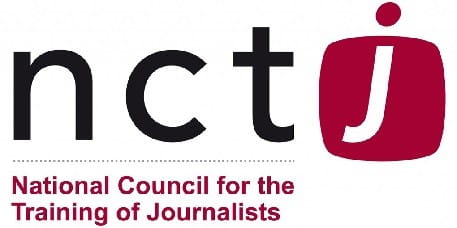
Your Learning Experience
Excellent facilities and learning resources
All teaching on the degree is face-to-face. This enables you to experience a rich and diverse learning experience and engage fully with your studies. Our approach ensures that you can easily access support from your personal tutor, either by meeting them on-campus or via a video call to suit your needs.
Teaching is delivered via a combination of lectures, seminars and workshops, in addition to around 22 hours of weekly production work and independent research. As you progress through the course, you will be expected to do more project research so you will only spend two days per week in class in your final year.
Teaching is delivered via a combination of lectures, seminars, online activities and workshops, in addition to around 22 hours weekly production work and independent research.
As you progress through the course, you will be expected to do more project research so you will only spend two days per week in class in your final year.
Work-related Learning
This vocational course offers many opportunities for practical, hands-on experience and work placements, thanks to our connections in the local, national and international media and sports clubs. For instance, LJMU has formed partnerships with various sports clubs and these important links have potential for placements and employment. Journalism alumni have gone on to work as sports journalists and presenters with a variety of print, broadcast and online media outlets, and many have found work in the communications departments of sports organisations, including Liverpool and Everton football clubs. Typically, students will receive 12 hours tuition a week and they will be expected to complement their studies by reading books, journals and newspapers, and watching and listening to news and sports bulletins on television, radio and online. The Liverpool Screen School is well equipped and there should be no reason for students to buy extra equipment.
Work experience, which takes place in the third year and is mandatory, offers invaluable opportunities to practise your skills in a high-pressure news media environment and will put you at a distinct advantage over other applicants once you enter the competitive job market. In fact, many students are offered permanent jobs at institutions like the BBC, Trinity Mirror and Lime Pictures on the basis of a successful work placement.
Liverpool has a thriving journalism industry, with one of the UK's largest and most successful evening newspapers and the largest newspaper publisher on its doorstep. Several TV companies are based in the city, including the BBC, Granada and Hollyoaks creators, Lime Pictures. The region also has around 25 radio stations, the national velodrome and countless football, rugby union and rugby league clubs.
Dedicated personal tutor, plus study skills support
If you decide to study with LJMU, you will join a warm and friendly learning environment where creativity is nurtured and supported by excellent learning resources. Throughout your studies you will be supported by a dedicated personal tutor who will be available to discuss course-related issues, monitor your progress, and meet with you twice a year to discuss your educational and career plans.
Assessment varies depending on the modules you choose, but will usually include a combination of exams and coursework.
We acknowledge that all students perform differently depending on how they are assessed, which is why we use a range of assessment methods. These include: essays, projects, portfolios of work, exams, reports, group and individual presentations, and dissertations. Much of the work is journalism based and supported by academic essays and presentations.
Where you will study
The School is based in the Redmonds Building, in the heart of the bustling Mount Pleasant Campus and Liverpool's growing Knowledge Quarter. The building is home to high quality lecture theatres and seminar rooms, TV studios, radio suites, green screen, editing rooms and newsrooms, social spaces, and a café. It is only a short walk from LJMUs Aldham Robarts Library, which contains all the resources you will require for your studies.


My route into the industry was made far easier by undertaking BA Sports Journalism at LJMU. We were taught a wide range of skills on the course and I use many of these on a daily basis in my current role. I feel my transition into full-time work was hugely benefited by my three years studying BA Sports Journalism at LJMU.
Career paths
As a Sports Journalism graduate, you will possess all of the practical skills required to enable you to work in a variety of roles connected to the sports media industry.
LJMU Sports Journalism graduates have a good track record of employment, forging successful careers as sports reporters, freelance journalists, editors and presenters. As well as working in broadcasting and across a range of digital media outlets, our graduates can be found working for sports governing bodies, club media and other sports related public relations and communications departments.
Student Futures - Careers, Employability and Enterprise Service
A wide range of opportunities and support is available to you, within and beyond your course, to ensure our students experience a transformation in their career trajectory. Every undergraduate curriculum includes Future Focus during Level 4, an e-learning resource and workshop designed to help you to develop your talents, passion and purpose.
Every student has access to Careers Zone 24/7, LJMU's suite of online Apps, resources and jobs board via the LJMU Student Futures website.
Tuition fees and funding
- Full-time per year:
- £9,535
The University reserves the right to increase tuition fees in accordance with any changes to the maximum allowable fees set by the UK Parliament. In the event of such a change, any fee increase will be subject to a maximum cap of 10% of the total course cost as originally stated at the time of your offer.
The fees quoted above cover registration, tuition, supervision, assessment and examinations as well as:
- library membership with access to printed, multimedia and digital resources
- access to programme-appropriate software
- library and student IT support
- free on-campus wifi via eduroam
Additional costs
Although not all of the following are compulsory/relevant, you should keep in mind the costs of:
- accommodation and living expenditure
- books (should you wish to have your own copies)
- printing, photocopying and stationery
- PC/laptop (should you prefer to purchase your own for independent study and online learning activities)
- mobile phone/tablet (to access online services)
- field trips (travel and activity costs)
- placements (travel expenses and living costs)
- student visas (international students only)
- study abroad opportunities (travel costs, accommodation, visas and immunisations)
- academic conferences (travel costs)
- professional-body membership
- graduation (gown hire etc)
Funding
There are many ways to fund study for home and international students. From loans to International Scholarships and subject-specific funding, you'll find all of the information you need on our specialist funding pages.
- Full-time per year:
- £17,750
International Scholarships and payment plans
Liverpool John Moores University is committed to supporting international students by providing a range of scholarships and flexible payment plans to help students manage their tuition fees.
Scholarships
LJMU provides a variety of scholarships to support international students. Scholarships are available to self-funded students who have accepted their offer and met all the conditions outlined in their offer letter. Students must also demonstrate that they can cover living costs, travel, and other expenses associated to studying at the university. Postgraduate scholarships include tuition fee reductions and are often offered in partnership with external funding organisations.
All self-funded international students are eligible for an automatic scholarship worth up to £4,000. For more details and to view our full list of scholarships, visit the international scholarship webpages.
Deposit
All students must pay a £5,000 deposit before they can receive their CAS letter.
For more information view our deposit page.
Tuition Fee Payment Plan
After paying their £5,000 deposit, students have the option to pay their fees in full or in three equal instalments minus any internal scholarships and discounts. There are two payment options available for international students. You can either pay your tuition fees in full before enrolment or opt for a payment plan. With the payment plan, you can pay your fees in three instalments after making your £5,000 deposit. The first instalment is due before enrolment.
All payments should be made through Flywire. Full details can be found in the How to Pay Guide.
Early Bird Tuition Fee discount
We are excited to introduce a £500 Early Payment Discount to all self-funded international students. Eligible self-funded students who pay their fees by the required deadlines will get a discount which will be automatically deducted from the 1st year of tuition fees.
To see the required deadlines please visit the webpage
Entry requirements
Please choose your qualifications below to view requirements
Grades/points required from qualifications: BBC-ABB (112-128)
Work out how many UCAS points your qualifications are worth by visiting the UCAS Tariff Calculator.
Qualification requirements
GCSEs and equivalents
A levels
BTECs
Extended Diploma: DMM-DDM
Access awards
International Baccalaureate
Acceptable on its own and combined with other qualifications from a relevant subject
OCR Cambridge Technical
Extended Diploma: DMM-DDM
Irish awards
Acceptable on its own and combined with other qualifications From a relevant subject
T levels
Further information
-
DBS, Occupational Health requirements
Is a DBS check required?
No
Can this course be deferred?
Yes
International requirements
IELTS
Further information
-
DBS, Occupational Health requirements
Is a DBS check required?
No
Can this course be deferred?
Yes
Please Note: All international qualifications are subject to a qualification equivalency check.
How to apply
Securing your place at LJMU
UCAS is the official application route for our full-time undergraduate courses. Further information on the UCAS application process can be found here https://www.ljmu.ac.uk/study/undergraduate-students/how-to-apply.
Your university life
From accommodation and academic support to clubs and societies. Find out what LJMU has to offer.
Related Links
Talk to our students
Connect with a current LJMU student for advice and guidance on university life, courses and more.
See what our students are saying
At LJMU we want you to know you're making the right choice by studying with us. You can see what our students are saying about their experience with us through their reviews on the following websites:
Related Links
News and views
Browse through the latest news and stories from the university
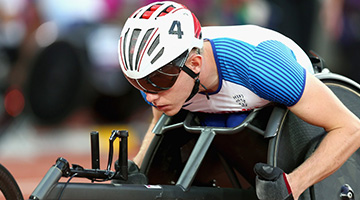
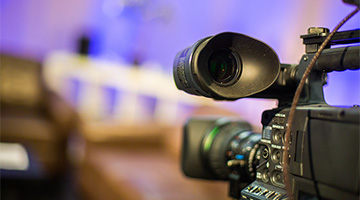

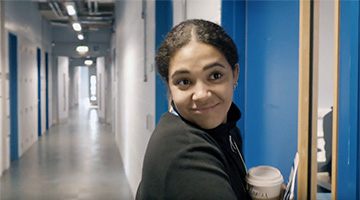

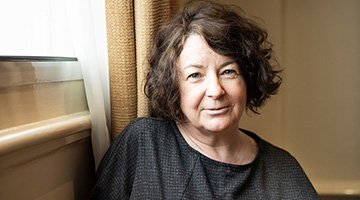
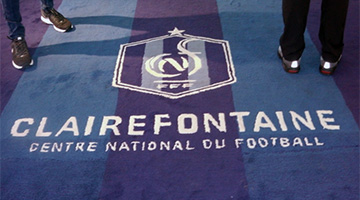
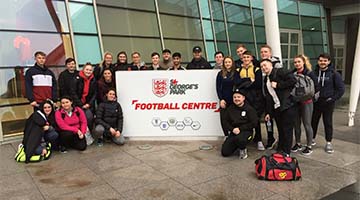
The university reserves the right to withdraw or make alterations to a course and facilities if necessary; this may be because such changes are deemed to be beneficial to students, are minor in nature and unlikely to impact negatively upon students or become necessary due to circumstances beyond the control of the university. Where this does happen, the university operates a policy of consultation, advice and support to all enrolled students affected by the proposed change to their course or module.
Further information on the terms and conditions of any offer made, our admissions policy and the complaints and appeals process.

















